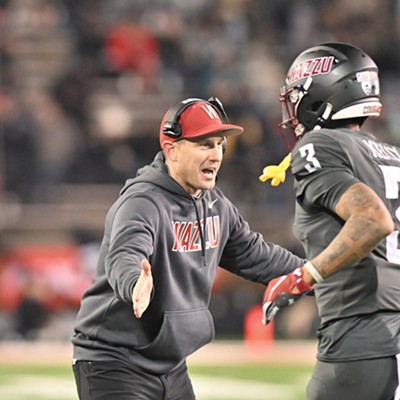Wednesday, September 21, 2011
As David Simon comes to WSU, five things The Wire did best
That’s David Simon, showrunner of The Wire. You remember TheWire? That “best show on television” everybody was talking about a few years ago?
Now I’ve never felt that The Wire was the best show on television ever — I found The Shield and Breaking Bad’s tight focus more compelling thanThe Wire’s sprawling scope — but there’s no denying that it is one of the most unusual shows.
Here are just a few things it did better than almost any other show:
1. Novel-like serialization. While 24 (in which one hour follows the next over 24 episodes in the most literal sense) is probably the clearest example of the way many of the most discussed shows of the past decade moved from standalone episodes to serialized episodes, The Wire treated its chapters less like a Dan Brown novel and more like an actual novel. At first, it’s hard to keep track of who’s who. There are so many characters floating about, so much going on that it almost seems like nothing’s going on at all. It’s not until three-quarters of the way through the first season that everything begins to click into position. Suddenly, things make sense. And all that time spent with the characters — that slow, slow burn — makes what happens toward the end of the season matter.
Commercially, such a slow development is crazy. But as literature, it was brilliant. Copycats that have tried something similar (like Boardwalk Empire) have just been boring.
2. Television as philosophical essay. Plenty of TV writers shoehorn in their point of view. David E. Kelley has his characters go on long tirades about his political viewpoints. Aaron Sorkin does the same but has them walk briskly through corridors while doing it. But the best essays are implicit in the story itself. The Wire was about drugs, education and politics as much as it was about the crumbling American city. It’s about how institutions aren’t just dragged down by corruption, they create corruption. The outlook is bleak — tragedy assured. Nearly every moment, every conversation, every scene is devoted to subtly, slowly building that argument.
3. Blurring the line between protagonists and antagonists. The line between good and evil has been blurred for a long time on TV. The Antihero is practically the only type of protagonist on cable these days. But The Wire went further, treating the cops, the drug dealers, the dockworkers, and the politicians all as main characters. Everyone’s point of view — more than any show I can think of — was fully and completely explored. After all, they’re just pieces of the true protagonist: Baltimore.
4. Nailing inner-city dialogue. Here’s the grim truth: When TV writers try to write using Ebonics or inner-city slang, it’s usually painful. It feels like your dad trying to use Internet abbreviations. But the way that the young kids on The Wire talked — well, that felt real. It felt like the sort of dialogue I’d hear in high school or riding the bus. I’m no expert on inner-city dialogue, but I do know what sounds cheesy. And as hard as the kids from The Wire were to understand sometimes, they never sounded cheesy. White, middle-class kids quoting The Wire, however? Now, that’s cheesy.
5. Improving the respectability of the medium. Television has long had an unfair reputation. Theaters? Cinema? Respectable forms of viewing the artistic creations of great artists and actors. Television? Boob tube. But now, I’m hearing the sorts of people that once said, “Oh, I don’t own a TV,” say,“Oh, I only watch The Wire.” While The Wire never had fantastic ratings or a constant stream of awards, it did tell people: Hey, this is what television could be. This where you’re missing out.
The Wire wasn’t the first show to do this. But at a time when television drama was improving across the board, The Wire was the clearest example to the skeptically pretentious.






















